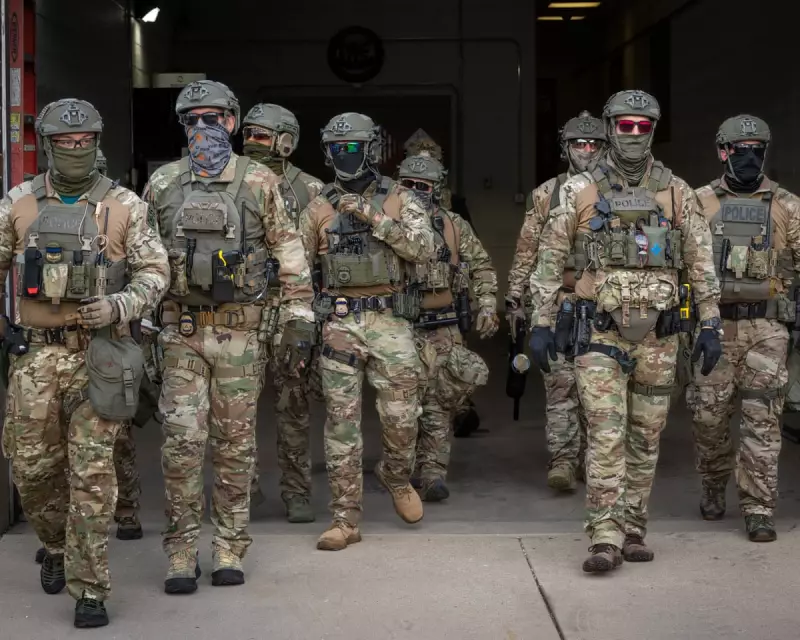
In a move that has ignited a firestorm of debate across the United States, California Governor Gavin Newsom has signed into law one of the nation's most restrictive bans on wearing masks in public spaces. The controversial legislation, designed to empower law enforcement, directly challenges the complex legacy of mask-wearing that evolved from health necessity to potential criminal disguise.
A Legislative Response to Organised Crime
The new law, set to take effect in the coming months, makes it illegal to wear a mask "for the purpose of concealing one's identity" in virtually all public settings. This includes protests, demonstrations, and public transit systems. The legislation emerges from a growing concern among law enforcement agencies that masks have been increasingly used by organised groups and individuals to evade identification while committing crimes.
Governor Newsom defended the decision, stating the law provides "clarity and authority" for police to address what he described as a significant challenge to public safety. "This is about ensuring accountability and preventing individuals from hiding behind masks while engaging in unlawful behaviour," a spokesperson from the Governor's office explained.
The Civil Liberties Uproar
Civil rights organisations have reacted with immediate and fierce opposition, labelling the ban a dangerous overreach that criminalises vulnerable communities. The American Civil Liberties Union (ACLU) of California has condemned the legislation, arguing it effectively outlawed a form of anonymous speech that has been crucial for protest movements throughout history."The right to protest anonymously is deeply rooted in American tradition, protecting participants from retaliation and enabling marginalised voices to be heard," an ACLU representative stated. Critics particularly highlight the potential impact on immunocompromised individuals and those who continue to wear masks for health reasons, who may now face increased scrutiny and potential police encounters.
Law Enforcement's New Toolkit
For police departments across California, the law provides a new tool to address what they identify as a tactical shift among criminal elements. Law enforcement officials cited numerous instances where suspects used masks—from simple medical coverings to more elaborate disguises—to avoid facial recognition technology and prevent witness identification.
However, the legislation does include specific exemptions. These include masks worn for religious purposes, professional duties (such as healthcare workers), traditional cultural celebrations, and specific sporting activities. Yet, legal experts question whether these exemptions provide sufficient protection against arbitrary enforcement.
The National Implications
California's decisive move places it at the centre of a national conversation balancing public safety against civil liberties. As other states observe the implementation and legal challenges to this sweeping ban, many wonder if this represents a new trend in policing strategy or a constitutional misstep that will face significant judicial scrutiny.
The coming months will likely see legal challenges from civil liberties groups, potentially setting the stage for a landmark Supreme Court decision on the boundaries of anonymous speech and public safety in modern America.





